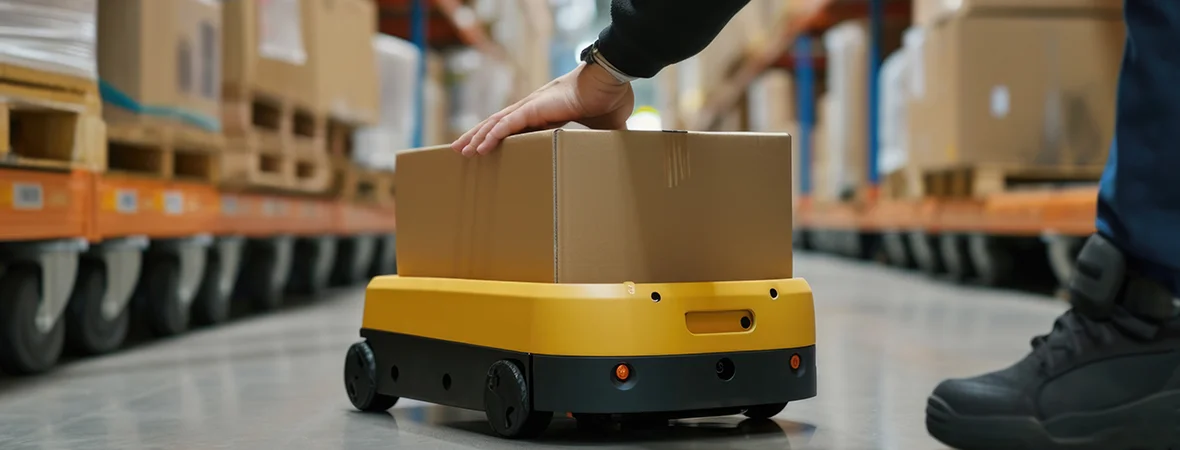
In this ever-changing world of eCommerce, optimized and smart inventory management is crucial for businesses to thrive and meet evolving customer demands. As technology continues to evolve, the integration of AI and automation in eCommerce has revolutionized inventory management, leading to increased efficiency, reduced costs, and improved customer satisfaction.
Here are the seven ways AI is streamlining inventory management for e-businesses.
1) Demand Forecasting with AI
AI-powered demand forecasting has become a game-changer for eCommerce businesses. By analyzing historical sales data, market trends, and other relevant metrics, AI algorithms can predict future demand with remarkable accuracy. This allows businesses to optimize their inventory levels, preventing stockouts while minimizing excess inventory. As a result, capital is freed up, and the risk of deadstock is significantly reduced.
Read also: How AI is reinventing demand forecasting for online businesses?
According to McKinsey, businesses that implement AI-based demand forecasting experience a 20% reduction in forecasting errors, leading to a 10% increase in on-time shipments. This level of accuracy not only optimizes inventory levels but also helps businesses save on shipping costs and prevents the loss of potential sales due to stockouts.
2) Real-Time Inventory Tracking
Manual inventory tracking can be error-prone and time-consuming. However, with automation and AI, businesses can now implement real-time inventory tracking. Connected devices, such as RFID tags and IoT sensors, enable businesses to monitor stock levels continuously. This data is then processed by AI systems, providing real-time insights into inventory status, helping businesses to make timely restocking decisions, and preventing inventory discrepancies.
3) Efficient Order Management
Handling a high volume of orders efficiently is a challenge for many eCommerce businesses. AI-driven automation streamlines the order management process by intelligently routing orders, optimizing order fulfillment, and prioritizing critical shipments. Additionally, AI-powered systems can identify potential delays or bottlenecks, enabling businesses to take proactive measures and ensure timely deliveries.
The National Retail Federation estimates that U.S. retailers lose a staggering $224 billion annually due to inventory shrinkage, overstocks, and stockouts. Leveraging AI and automation can help mitigate these losses significantly by improving inventory accuracy and optimizing replenishment processes.
Read also: How Inventory Management Automation is driving eCommerce Businesses?
4) Personalized Product Recommendations
AI's capabilities extend beyond inventory tracking and order management. By leveraging machine learning algorithms, businesses can offer personalized product recommendations to customers based on their browsing and purchase history. This enhances the customer experience, increases conversion rates, and fosters customer loyalty. Satisfied customers are more likely to return, leading to higher customer retention rates and increased sales.
5) Preventing Fraud and Loss Prevention
AI plays a significant role in fraud prevention in eCommerce. Through machine learning, AI systems can detect and flag suspicious activities, such as fraudulent transactions and unauthorized access attempts. By identifying potential risks early on, businesses can take appropriate actions to safeguard their inventory and financial assets. This ensures a secure shopping experience for customers, enhancing brand trust and reputation.
A study found that e-businesses lose an average of 1.58% of their annual revenue to fraud. By utilizing AI for fraud detection, businesses can reduce losses by up to 40%. This highlights the importance of AI-driven tools in safeguarding inventory and financial assets.

Read also: How AI is defending the battle against fraud for eCommerce websites?
6) Optimizing Warehouse Operations
Traditional warehouse operations often involve manual processes and human intervention. However, AI-powered automation has transformed the way warehouses operate. Smart robots and automated guided vehicles (AGVs) streamline the picking and packing process, reducing the chances of errors and expediting order fulfillment. This efficiency translates into faster shipping times and increased customer satisfaction.
7) Supplier Management and Predictive Reordering
AI and automation have also revolutionized supplier management. By analyzing supplier performance and lead times, AI-powered systems can recommend the most reliable and cost-effective suppliers. Moreover, predictive reordering capabilities enable businesses to automate the restocking process. When inventory levels reach a predetermined threshold, the system automatically generates purchase orders, saving time and effort for business owners.
Use Case
A prime example of successful inventory management with AI and automation is seen in the case of a global electronics retailer for Diginyze. By integrating an AI-powered demand forecasting system, the retailer was able to achieve a 25% reduction in excess inventory, translating into cost savings of millions annually.
Additionally, they implemented real-time inventory tracking, reducing stockouts by 30% and enhancing on-time deliveries by 20%. These improvements led to a significant boost in customer satisfaction, with a 15% increase in customer retention rates.

How Diginyze is Helping Inventory Management Using AI and Automation?
Diginyze, an AI-powered eCommerce platform, is revolutionizing inventory management. It uses AI for demand forecasting, predicting future needs based on historical data and trends, and optimizing inventory levels. Real-time inventory tracking provides timely restocking alerts preventing discrepancies. The platform streamlines order management, offers personalized product recommendations, and has intelligent AI-powered fraud detection capabilities. It also optimizes warehouse operations and automates supplier management and restocking processes.
Takeaway:
The adoption of AI has resulted in increased efficiency, reduced costs, improved customer satisfaction, and overall growth for eCommerce businesses. As technology continues to evolve, we can expect further advancements in inventory management through AI, driving even greater success for businesses in the ever-changing landscape of eCommerce.
Experience the future of inventory management with Diginyze. Get in touch now
Recent Blogs
Explore latest insights and trends in technology and eCommerce.
Case Studies
Your Digital Transformation Starts Here!
Join thousands of businesses transforming with Diginyze. Sign up today and start now!


























